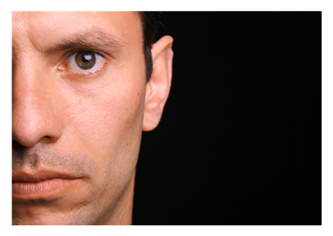Breaking rules.
 We teach our children not to do it. We try not to do it. And sometimes, we justify breaking rules in a context of fairness – or possibly survival.
We teach our children not to do it. We try not to do it. And sometimes, we justify breaking rules in a context of fairness – or possibly survival.
But if we didn’t live in a world with rules – let’s call them social mores, conventions, or laws for that matter – then chaos would reign. Arguably, you could say worse chaos would reign than what exists today for some of us.
So we need our rules of various types, which most of us follow to a large extent.
And then there are those who don’t. Sometimes they face consequences. Other times, not so much.
Following or breaking the rules isn’t a black and white issue of course. There are those who routinely break rules and justify anything, those that “bend the rules just this once,” and all sorts of variations in between.
The white lie? The convenient excuse? Does that count as breaking rules – or bending them? Does bending rules too often lead us to break them – without thinking twice?
Heroes and Sociopaths
And what about the hero? The personality type that never backs down from what is right, from the courageous stand, from plunging in to help another even at considerable risk to himself or herself? What about the good souls who live by standards of generosity, honor, and to some extent – selflessness – because any other behavior would seem unthinkable?
According to an article on Science 2.0, we shouldn’t assume that the eternal Do Gooder or Hero is a rule follower. It may be inconceivable for him or her to do the “wrong” thing, but that doesn’t necessarily mean following the rules. In fact:
Someone who goes out of their way to help others, even at the expense of their own welfare, is actually more likely to break rules than the average person.
 Hmm. Dr. House comes to mind, doesn’t he? An expert at breaking the rules – ideally for good – and with a massive ego or should we say, God Complex.
Hmm. Dr. House comes to mind, doesn’t he? An expert at breaking the rules – ideally for good – and with a massive ego or should we say, God Complex.
On the other side of the coin is the sociopath – one who is willing to embarrass, demean, or harm others; one who frequently disregards rules entirely; one who may feel no particular worry or guilt as most of us do, and for whom personal motivations rule – and rule-followers drool.
Is narcissism adding to the equation as well? Our seemingly permissive society? Or is contemporary culture so rife with complexity (and moral relativism) that clear-cut situations of right and wrong are fewer than they once were?
Following Rules (Teaching our Kids)
We all want our kids to follow rules – our rules, anyway. And usually, we want them following society’s rules as well. We tell them: don’t cheat at school or you’ll wind up with an F (though adults fudge the expense account or cheat on their taxes); don’t lie or no one will trust you (though we tweak the truth on a regular basis); don’t text and drive or it can kill you (and who here hasn’t broken that one?).
We talk the talk; sometimes we walk the walk.
We know our teenagers (especially) can flash their smiles, and we’re uncertain what’s really going on in their heads.
We insist that following rules is important, and we enforce consequences when we find our children breaking the rules.
 We are nonetheless aware that breaking some rules is a matter of personal morality (the civil protester), or the fledgling remains of another era; laws pertaining to same sex encounters come to mind, as do crazy state-specific sex laws which are good for a laugh if nothing else!
We are nonetheless aware that breaking some rules is a matter of personal morality (the civil protester), or the fledgling remains of another era; laws pertaining to same sex encounters come to mind, as do crazy state-specific sex laws which are good for a laugh if nothing else!
Sometimes, breaking or bending the rules is a judgment call. And don’t we want our kids to grow into adults capable of making reasoned judgments? Doing was is morally right even if it breaks or bends a rule? Understanding that we live in a world of moral ambiguity, whether we like it or not?
Issues of Fairness
I might say that we teach most life skills at home; my sons absorbed their values at my side, though not exclusively. They certainly picked up plenty at school, or during periods of time away from me, including with their father, as well as family overseas.
Among their difficult lessons – that life isn’t fair – and that includes seeing others bend rules and get away with it, as well as decisions of their own which required judgment I can only hope leaned toward integrity.
- Do you break rules or bend them?
- Do you justify breaking or bending rules when you believe they’re morally wrong – and you’re morally right?
- Have you lived with or encountered those who break rules just because they can?
- How do you model your approach to your children? The importance of following rules, the consequences of breaking them, issues of judgment?
You May Also Enjoy
Image of Hugh Laurie, Wiki, Creative Commons 2.0
I’ve commented on some of this before. Fran and I are publicly civil disobedient for a moral purpose. This is distinguishable from mental and moral derangement that I have sometimes seen in others. My kids know the difference. The rest is up to them.
I thought of you and Fran when writing this, Paul. Acting on the courage of your convictions. I admire both of you, enormously.
When it comes to rules that are important – moral rules or laws – I am consistently a rule follower. Uh-oh! I speed when I drive – not excessively, but the speed limit is a law (that means I break the law). That means I just told a little white lie about following the rules (also broke a moral rule). Got me 🙂
I have known a sociopath. A person who operates without a conscience is usually a destructive person to have around. No thanks.
When it came to our children, we tried to teach them good manners, respect for authority, and also to think for themselves. We tried to bring them up to be good moral people and good citizens. Thankfully, they are both. But when they were growing up; if they broke rules, we tried to make the consequences fit the behavior. This was usually effective.
I do believe in standing by your own moral compass even if you must break rules or the law. However, I would qualify this by saying I think that no harm should come to others – people or property – in the process. Peaceful dissention.
I totally agree that we live in a time of “moral relativism”. Great post!
“life isn’t fair” was kind of my mantra when my kids were small. I told them this over and over again, and then always added…”it’s what YOU do with it”.
I believe that is our single most important job here on earth…take what comes, be responsible for your role in it, and then make the most glorious outcome you possibly can in the process.
Tricky subject.
I clearly bend the rules when I think my moral compass gives me a better sense of where I should be heading, and sometimes when it suits my interests, though not to the detriment of others or ignoring said compass.
My kids are young, so for know I try to teach them to follow the rules, though I clearly tell them when I don’t do so, and why. I also tell them that I try to teach them what I believe is the “truth” as best as I can, though ultimately they should not trust me or anybody, even themselves, but keep questioning.
When they are old enough to have formed their own moral compass, my advices will be more along the lines of how to be efficient, not get caught, or be prepared to assume the full consequences of your choices if you feel you have to bend or break the rules. ^_^
Moral relativism, Alain. The place we come to reside as adults – to varying degrees?
As a doctor, I have to break rules left and right every day. It’s the only sane thing to do.
I can’t even imagine… but somehow, that sounds right, Wolf.